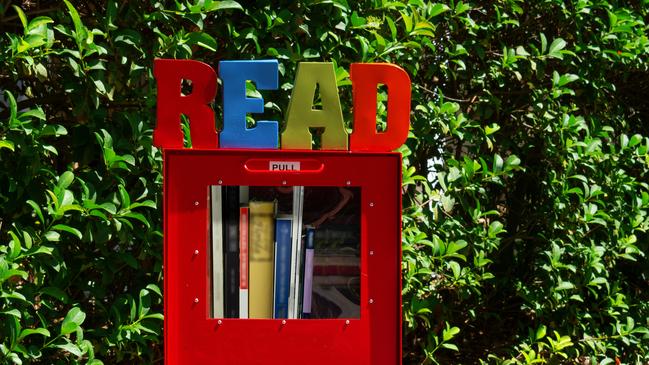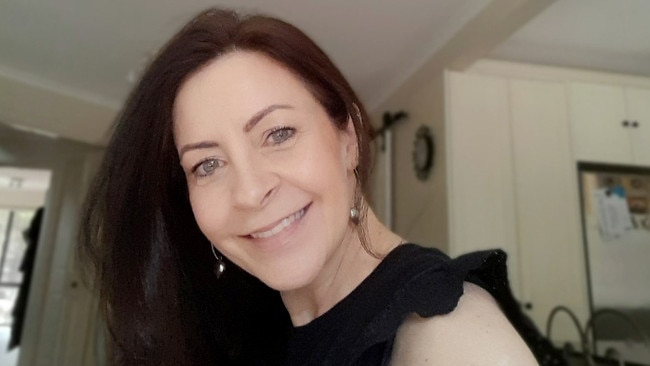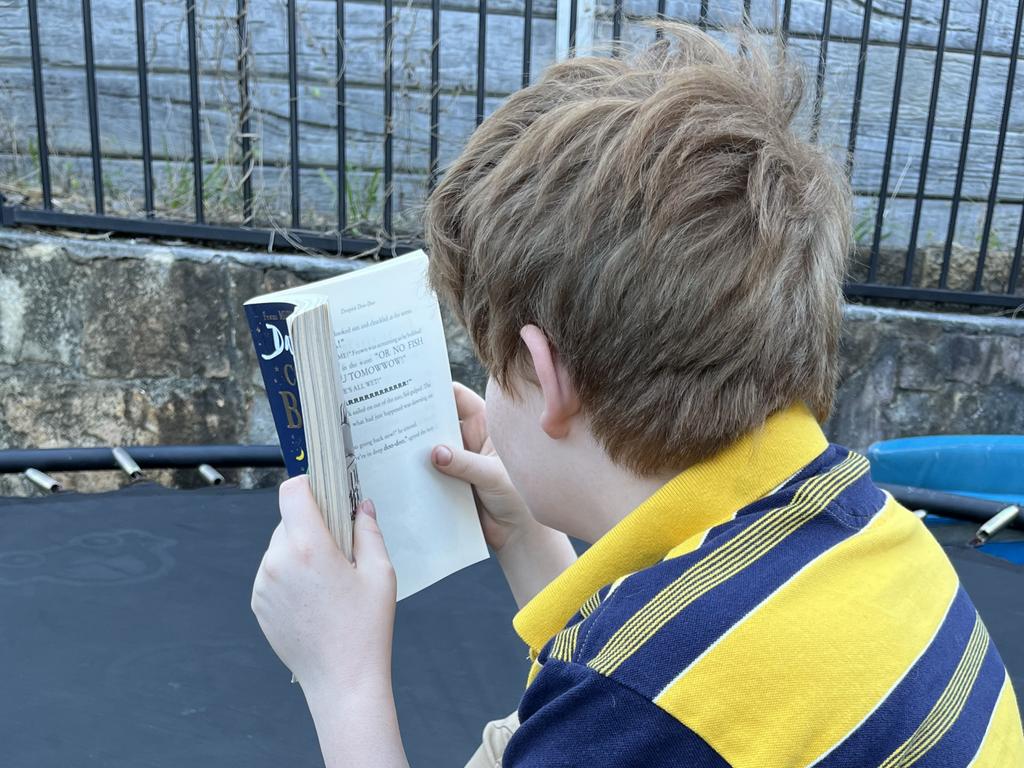‘I read like a five-year-old’: semiliterate adults the avoidable casualties of literacy wars
‘For years I tried to cover it up.’ A successful business woman explains how she left high school with the reading ability of a five-year-old.

Businesswoman Sharon Stokes struggled to read until age 28, when she discovered her undiagnosed dyslexia.
Whenever she was asked to read something, Ms Stokes fibbed that she’d forgotten her glasses.
“No one ever picked it up, nobody cared,” she said of the failure of her school and family to recognise her learning difficulty. “I left school feeling dumb. I couldn’t spell to save myself and I read like a five-year-old. For years I tried to cover it up.’’
It was only when a client noticed she was muddling digits when writing down a phone number that Ms Stokes sought her diagnosis of dyslexia. Prescribed orange-melon coloured glasses, she found “as soon as I put the glasses on, it was easy to read”.

Ms Stokes’s predicament is common: one in eight Australian adults is functionally illiterate, based on international testing by the OECD in 2011. (Australia did not take part in the most recent global test in 2022.)
Even some teachers have trouble with literacy; in 2023, a record 10.4 per cent of university students failed the literacy test they must pass to graduate from a four-year teaching degree.
Now 55, Ms Stokes owns a beauty business and works part time as a learning support officer for young children at a Canberra primary school.
The school uses the MiniLit program to teach children how to sound out words through phonics, rather than guess them in the context of pictures and sentences. Phonics-based reading – rather than the failed fad of whole-word recognition – is credited with helping to detect dyslexia in children and ensure they master reading. Labor and the Coalition have both pledged during the federal election campaign to champion phonics-based teaching in schools.
But veteran teachers warn that decades of resistance to the old-school reading method have damaged generations of children.
Retired teacher Andrew Humphreys taught in some of Melbourne’s poorest high schools in the 1980s and 90s, before switching to social work to help wayward teenagers learn to read.
“The illiterate boys failed by whole-language tuition go on to make up most of our long-term unemployed and prisoners,” he said. “This has been the greatest avoidable social catastrophe in our history, and dooms poor girls to single motherhood and boys to prison or oblivion.”

Mr Humphreys said many children from poor families didn’t have books at home and started school without any reading skills.
“When I started working with young offenders, I realised that they were almost all illiterate,” he said. “They started getting in trouble at school in grade 1 and 2.
“Then by year 7 and 8 they’re getting serious suspensions and meeting older criminals who are 16 or 17, and they were away.”
Mr Humphreys said he had bought teenage boys subscriptions to car, fishing or skateboarding magazines to get them hooked on reading. “They had to really struggle to read the captions underneath, but it had them hooked, they could see a point to it,” he said.
“I’ve seen adult men who’ve learned to read in prison and their life changes overnight.”
Adelaide-based educational psychologist Paul Tyrrell, who worked in schools from the 1980s, said there was “much rejoicing that common sense is prevailing” through a return to phonics-based literacy.
“I am very sad it has taken 40 years for this systemic educational abuse of two generations of children to come to light,” he said. “It will take another decade to repair the damage.”
Mr Tyrrell said universities were instructing trainee teachers that “learning to speak, and learning to read and write, require similar skills”. “This is the root cause of this long-term and tragic problem,” he said.







To join the conversation, please log in. Don't have an account? Register
Join the conversation, you are commenting as Logout